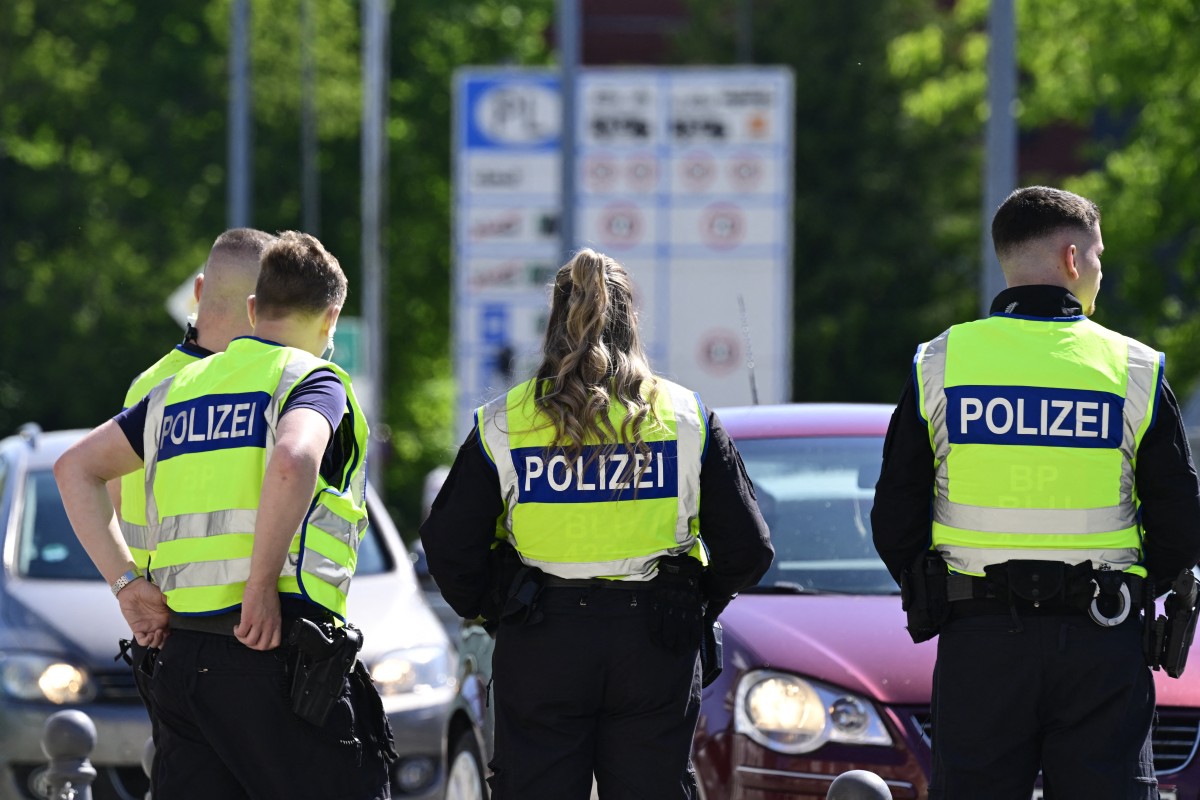Friday's top story: German minister calls for Google to be broken up
Germany's culture minister said Google should be broken up, in remarks released Thursday that risk the ire of US President Donald Trump at a time of transatlantic trade tensions.
Speaking on the Friday edition of Politico's Berlin Playbook Podcast, Wolfram Weimer accused Google of "paying next to no tax" and of "giving nothing back to society".
"We need to address Google on all fronts," he said. "Best of all would be to break it up."
The comments come after the European Commission this month fined Google €2.95 billion for abusing its market position in online advertising, bringing Google's total EU penalties to nearly €10 billion.
"They earn billions and billions here and sneak it all out through Dublin", added Weimer, in a reference to Google's European subsidiary being based in lower-tax Ireland.
Trump has denounced taxes on digital giants as discriminatory against US firms, and in June broke off trade talks with Canada over Ottawa's planned digital services tax before it then backed down.
READ ALSO: Why is the internet so slow in Germany?
In May, Weimer said a draft tax on the revenue of large digital platforms was in the works and that a rate of 10 percent would be "moderate and legitimate".
"These companies make billions in Germany with very high margins and profit enormously from our media and culture as well as our infrastructure but pay hardly any tax," he told Stern magazine.
Controls on Germany's borders becoming unsustainable, says police commissioner
Uli Grötsch, the German Bundestag's police commissioner, has warned that the continued controls at Germany’s external borders are becoming unsustainable.
Introduced about a year ago by former Interior Minister Nancy Faeser and intensified by her successor Alexander Dobrindt, these controls have placed a heavy strain on the Federal Police, whose officers have accumulated nearly 3 million overtime hours by mid-2025.
Grötsch says the Bundesbereitschaftspolizei is close to its limits, with essential duties like monitoring knife ban zones at train stations and staff training suffering as a result.

Despite the government judging the controls a success due to a significant drop in asylum applications in recent months, Grötsch questions whether broad, nationwide border checks remain necessary. He urges the Federal Police to reassess strategies to maintain effective controls without overburdening personnel.
Suggested alternatives include targeted surveillance methods such as aerial monitoring.
The ongoing burden on police has prompted concern from unions and officials alike, highlighting the need to balance border security with operational viability and broader law enforcement responsibilities.
READ ALSO: Germany to further extend border controls in migration crackdown
Two World War II bombs and multiple evacuations in Berlin
Berlin faces major disruptions today as two World War II bombs are scheduled for to be defused, with more than 22,000 people affected by the evacuation measures.
In Mitte, police set up a 500-metre exclusion zone around Fischerinsel after an unexploded bomb was discovered in the Spree River. Evacuations were completed by 5am this morning, after approximately 10,000 people were asked to leave their homes.
Emergency accommodation was provided for those unable to stay with relatives or friends, roads were closed and service on the U2 subway line was interrupted.
Meanwhile in Spandau, around 12,400 residents have had to evacuate due to the discovery of a 100-kilogram Word War II bomb during construction work.
The restricted area includes a hospital, nursing home, elementary school, and two daycare centres.
The Russian unexploded bomb in Spandau was found during construction work on Wednesday morning. As the bomb did not pose an immediate danger, the police decided to wait until Friday morning to defuse it. The site was cordoned off and, according to the police, guarded around the clock by emergency services.
Germany likely to avoid technical recession, says central bank
Germany's battered economy should dodge a technical recession in the immediate future, thanks to an uptick in industrial production, the central bank said Thursday.
Europe's biggest economy has been in a years-long slump amid high energy prices, fierce competition from China and the impact of US tariffs imposed this year.
But the Bundesbank pointed to July industrial production and orders data and said that the German economy was "showing itself to be relatively robust amid a difficult environment".
German industrial output grew a better-than-expected 1.3 percent in July. Industrial orders fell, but the central bank said this was mainly down to natural "volatility" in the placing of large orders.
"Despite the additional burdens imposed by new US tariffs, there are no signs of a major slowdown for industry in the third quarter," it said.
"Demand for German industrial goods is fundamentally on the rise."
READ ALSO: Germany drops out of world's top 10 most innovative economies
The report will make welcome reading for conservative Chancellor Friedrich Merz, who has made shaking Germany out of its economic slump a top priority.
Germany's economy will avoid a technical recession -- defined as at least two consecutive quarters of negative economic growth -- if it expands in the third quarter.
Summer weather returns to Germany
Thanks to the high-pressure system “Oldenburgia,” Germany is enjoying a brief return of midsummer weather, with temperatures rising above 30C in some regions, according to the German Press Agency.
The warm spell is expected to be short-lived, so enjoy it while you can.

On Friday, most parts of Germany will start the day with sunshine, except for some cloudier conditions in the north. Temperatures will generally range between 25 and 31C, cooler only in the far north with highs of 20 to 25C.
Saturday will be mostly sunny and quite warm, with temperatures between 25 and 32C. However, cloud cover will increase in the northwest throughout the day. Overnight, rain and thunderstorms are expected to spread from the Lower Rhine to Schleswig-Holstein.
Sunday will see scattered showers and thunderstorms across many areas, with heavy rain, hail, and strong gusts likely especially in eastern and southern regions, including Bavaria. Temperatures will range from 19 to 24C in the northwest and reach 24 to 30C elsewhere.
READ ALSO: The essential dos and don'ts for your first Oktoberfest
With reporting by AFP and DPA.

Comments